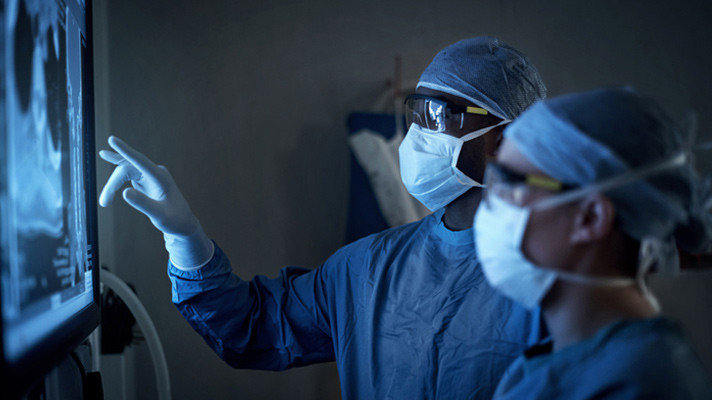
AI has been increasingly used by pharmaceutical innovators in the development of new medicines, but a US-Israeli startup has unveiled a platform that taps AI to analyze surgical practices in order to reduce medical errors.
The platform is the innovation of Theator, a US-Israeli startup co-founded by Dr. Tamir Wolf and Dotan Asselmann, and it will be implemented at the Tel Aviv Sourasky Center, the largest acute care facility in Israel.
According to reports, Tel Aviv Sourasky Medical Center treats 400,000 patients and hosts 1.8 million visits per year. The academic medical center is considered one of the most progressive full-service healthcare treatment and research institutions in Israel, serving a population of one million people, including visitors and residents from the greater Tel Aviv area.
“Hospitals and medical schools worldwide are realizing the importance of adapting a new surgical training regimen, and (Sourasky Medical Center) is pioneering this revolution,” Dr. Tamir Wolf, the company’s current CEO, said in a statement announcing the partnership between Theator and the Tel Aviv hospital.
This marks the first time an Israeli hospital will implement a surgical intelligence platform in its operating room. The collaboration comes a year after the Israel Ministry of Health’s declaration of intent to start capturing every procedure performed in the operating room.
“As part of our commitment to harness innovative technology, we’re honored to be the first hospital in Israel to implement Theator’s Surgical Intelligence platform,” said Dr. Guy Lahat, Chief of Surgery of Tel Aviv Sourasky Medical Center. “Integrating the latest proven technologies is central to our commitment to providing medical excellence and patient-centered care. Theator’s platform will not only enable us to capture and analyze surgical procedures for the first time, but it will also allow us to objectively review and continuously improve our surgical performance, significantly improving patient care.”
Theator’s technology will equip the surgeons and surgical residents of Tel Aviv Sourasky Medical Center’s general surgery departments with the tools needed to continually sharpen their craft, which raises standards and performance and makes routine video capture and analysis the new standard of care in surgery.
According to Dr. Wolf, as hospitals begin to resume surgeries following the COVID-19 pandemic, surgeons will be put under immense pressure to perform as many procedures as possible to offset the backlog. Indeed, he noted, surgeons in training (i.e., residents, fellows) that constitute a major part of the surgical workforce are already experiencing the adverse effects.


